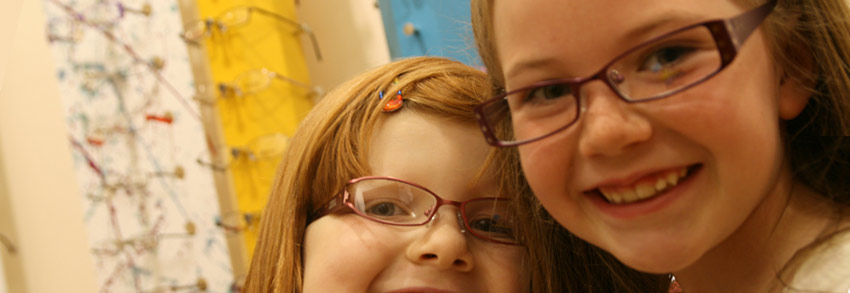Kids of all ages — even babies — can wear glasses and contacts.
Keep these tips in mind for kids who wear glasses:
- Allow kids to pick their own frames.
- Plastic frames are best for children younger than 2.
- If older kids wear metal frames, make sure they have spring hinges, which are more durable.
- An elastic strap attached to the glasses will help keep them in place for active toddlers.
- Kids with severe eye problems may need special lenses called high-index lenses, which are thinner and lighter than plastic lenses.
- Polycarbonate lenses are recommended for all kids, especially for kids who play sports. Polycarbonate is a tough, shatter-proof, transparent thermoplastic used to make thin, light lenses. However, although they're very impact-resistant, these lenses scratch more easily than plastic lenses.
Infants born with congenital cataracts may need to have their cataracts surgically removed during the first few weeks of life. Some children born with cataracts wear contact lenses after cataract surgery.
Around age 10, kids may express a desire to get contact lenses for cosmetic reasons or convenience if they play sports. Allowing a child to wear contacts depends on his or her ability to insert and remove lenses properly, faithfully take them out as required, and clean them as recommended by the doctor. Contact lens problems are almost always caused by poor habits and bad hygiene.
Your eye doctor can help you decide what type of vision correction is best for your child.
Source:
http://kidshealth.org/parent/general/eyes/vision.html#a_Glasses_and_Contacts

Your Baby checkup
what are the vaccinations that he should have taken until now?
Generate a report for my baby.
Track Your Baby Vaccinations
Find Your Baby name
Mohandessin
01002195777
01000012400
0233048350
Beverly Hills
01000012900
0238576831
El Tagamo3
Al Sheikh Zayed
02- 38514031
01000608597


